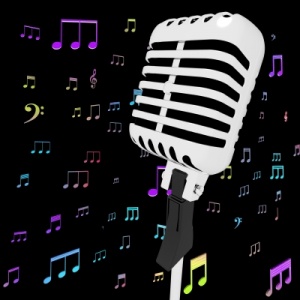
Image courtesy of Stuart Miles at FreeDigitalPhotos.net
Every writer takes in inspiration through their senses, with some senses being stronger than others depending on the author.
Me. I’m visual and touch. I see the scenes, feel the temperature, touch the surfaces. To write I need to be touching something – a keyboard or pen and paper. I’ve thought about DragonSpeak, but it doesn’t catch me on fire. To write, I just need to sit in my space with no distractions so I reach my inner space where things are happening. Sound is a big no-no for me.
Other people need other cues to write. Some people light a candle a favorite scent. Some people need certain lighting. Fuzzy clothing or other tactile trigger can indicate time to write. A nice cup of tea with a certain flavor not used any other time of day. So many rituals to activate the mind through the strongest sensory channel, letting it know TIME TO WRITE.
A lot of writers depend on music. For some, the music is part of the activation ritual only, not the ongoing process. They just listen to the song and approach the music for inspiration like I do visual prompt. Then turn off the music and write.
But most writers who employ music have it in the background to define the writing space.
David B. Coe listens to jazz. John Hartness has a certain playlist for when he writes fighting scenes. If you visit a coffee shop, you will see several writers with laptops and earbuds playing music. Many writers publish the “soundtrack” of their novel; music they listen to while creating or were inspired by for the story. Gibson House Press describes some in Novel Soundtracks (published November 19. 2018 – https://gibsonhousepress.com/novel-soundtracks/).
Me, when I hear words, they come out my fingers from my time doing transcription. But some people swear by it. Others want music without words. Sometimes people need words but can’t write with real ones so they work around the words interfering with their writing by listening to music in foreign languages.
Video game soundtracks are extremely popular because they are internally rewarding; they are built to be addicting and keep people doing the activity. (Looking for an outlet? – try Pandora’s Video Game Music Radio).
I’ve been remiss in not suggesting this sooner. Even though music is no-go for me (I listen to music for everything but writing), it may be the perfect thing for you.
WRITING EXERCISE: Explore Music with Your Writing. Go to Pandora or other music site, if you don’t have one already, and sample different types of music. Can you think of new words when hearing words? Does latino, classical, jazz, or video-game-experimental float your creativity? Think about your senses; which are your strongest for memory and interacting in the word outside of visual? For your starting ritual for writing (if you have one or think you need one), see what happens if you add a particular song or particular type of music. Remember for some writers, they only use music for particular types of writing – like fight scenes. Would that help you?
WRITING EXERCISE BONUS: Randomly pick one song. Can be through a large playlist or a random generator (like https://8tracks.com/mirandajae/some-random-tunes) and use it as a prompt to write a flash.
Interesting views. I tend to fill my space with music constantly – but I vary the genre depending upon the mood I am in, or, more properly, want to put myself in.